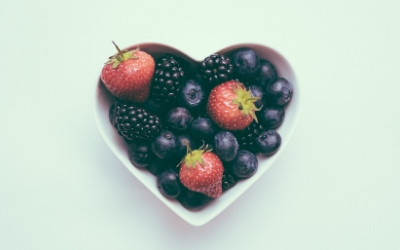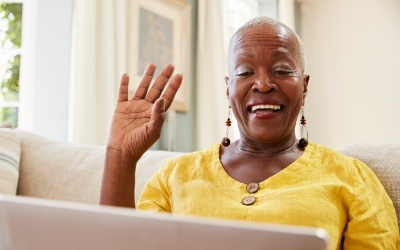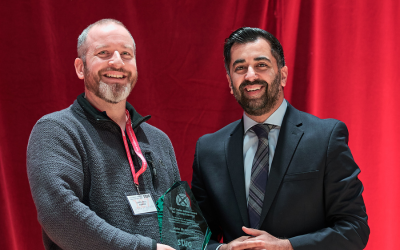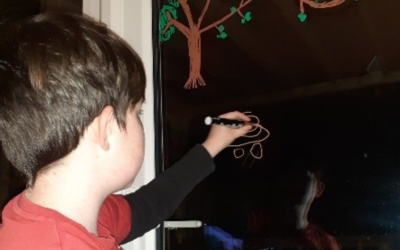How to age well while self-isolating
.jpg) Author:
Author:
Dr Jitka Vseteckova is a Senior Lecturer in the Open University’s Faculty of Wellbeing, Education & Language Studies.
People have been made to isolate to delay the spread of COVID-19 but there are several risks of self-isolation to older people.
This blog offers some tips on how to combat these risks. These tips will be explored further at an Ageing Well Virtual Talk, which is taking place online on Thursday 7 May 2020.
 The principles we’re discussing during these talks are known as the 'Five Pillars of Ageing Well':
The principles we’re discussing during these talks are known as the 'Five Pillars of Ageing Well':
1. Nutrition
2. Hydration
3. Physical stimulation
4. Social stimulation
5. Cognitive stimulation
The coronavirus pandemic necessitates that we take several measures to protect ourselves and others in our communities.
The latest evidence says that our communities, and individuals in them, will suffer less if measures of social distancing and self-isolation are introduced.
Self-isolation may lead to increased sedation, and further lack of physical, social and cognitive activity, which may not only prompt but more worryingly speed up the overall age-related decline.
It is very important that during the time of self-isolation we take care of ourselves and follow the ‘Five Pillars of Ageing Well’ advice so that we increase our chances of full recovery, should we be affected by the virus and/or remain in good health and keep our physical and mental wellbeing after the pandemic is over.
Nutrition
We need to be mindful of keeping regular food intake and make sure we try to keep all necessary nutrients (carbohydrates, proteins and fats) in our diet.
It is possible that there will be some temporary store stock shortages which means that we may need to be inventive and replace a source of nutrient with another. For example, if we can’t find pasta we may need to adapt and instead use rice and noodles.
If you can eat nuts try and have some every day, as they are an excellent source of protein as well as fats. Bananas are another excellent and filling source of nutrients.
In times that we exercise less, we may need to reasonably increase our intake of fibre (fruits and vegetables) to maintain good bowel function.
Hydration
It is immensely important to keep hydrated as good hydration keeps our metabolic rate at an optimal level, which has substantial benefits to all body and brain functions.
Good hydration is also especially important for our kidneys and liver which, in addition to very many other functions, deal with clearing up any medication we might be taking.
The strict minimum clear fluids intake is 1.5 litre per day but the closer you can get to 2 litres per day (around 8 cups, or 3.5 pints) the better.
Physical activity/stimulation
To keep our good health while we are getting older, we need to keep the blood regularly circulating. Keeping physically active will have a protective effect on our muscles, joints tendons and consequently bones. So, what can we do if we have to self-isolate?
We can spend time gardening or tidying up the garage. If we live in an apartment, we can do the house chores for a few minutes every day. Those with a smartphone can download one of several free apps for exercise at home or watch Tai-Chi videos on YouTube. Stretching and walking inside our home can be as good as walking and stretching outdoors.
Cognitive and social stimulation
 The brain, like the muscles, works better when regularly stimulated. Stimulation can be of various sorts. For example, observing the surroundings (people, places, nature etc.) or interacting with people and engaging with the world we live in.
The brain, like the muscles, works better when regularly stimulated. Stimulation can be of various sorts. For example, observing the surroundings (people, places, nature etc.) or interacting with people and engaging with the world we live in.
Apart from passive modes of communication (e.g. watching TV) we may need to mobilise our networks from distance, and not be too reserved to pick up the phone or go on the computer to and speak to friends and relatives.
This is also perhaps a good time to learn a new language (which has been reported by research as immensely stimulating).
It is very crucial to create a routine that takes us from the morning to the evening and incorporates elements of all the 'Five Pillars of Ageing Well'.
Keeping these in as much as we are able to will support us with keeping well and ageing well even when we need to have reduced social contact, self-isolate or, if it is needed, in a lockdown situation.
You can explore these tips further by joining the Ageing Well Virtual Talk, co-hosted by Voluntary Health Scotland and The Open University and led by the author of this blog, Dr Jitka Vseteckova, on Thursday 7 May 2020, 11.30am-1.30pm.
This blog is an extract of an article by Dr Jitka Vseteckova on the OU’s free learning site, OpenLearn, which includes a 10-minute video with tips on ageing well.
News
Media contacts
Media enquiries
OU in Scotland Media Relations:
Call 0131 549 7932
OU UK Press Office:
Call 01908 654316
Out-of-hours:
07901 515 891
Visit our OU UK news site

